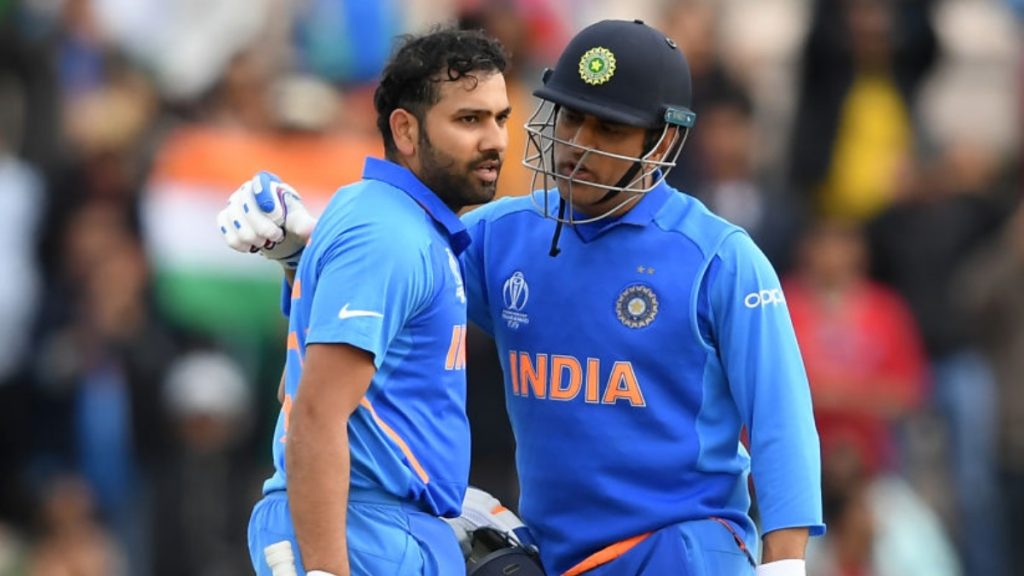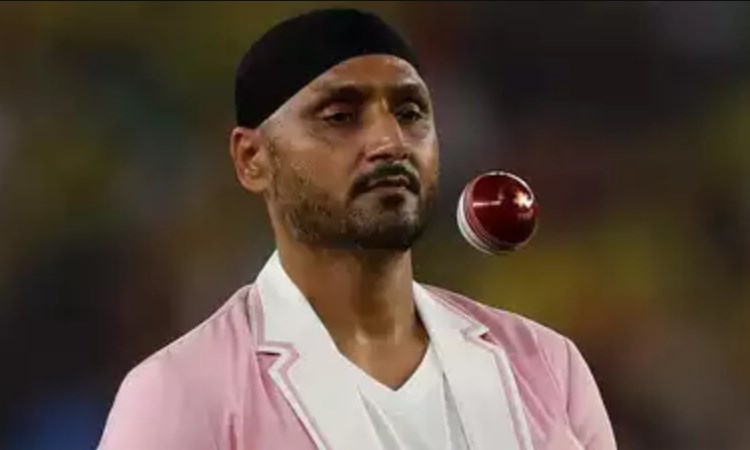World Cup-winning captains MS Dhoni and Rohit Sharma, two of India’s most successful leaders, have distinctly contrasting approaches to managing their players, says former India spinner Harbhajan Singh. Dhoni’s tenure as captain brought India three major ICC titles, including the T20 World Cup in 2007, the ODI World Cup in 2011, and the Champions Trophy in 2013. When Dhoni stepped away from captaincy and eventually retired from international cricket, India came close to winning an ICC title on multiple occasions but narrowly missed out.

However, it was under Rohit Sharma’s leadership that India finally ended their drought by clinching the 2024 T20 World Cup. Having played under several iconic captains like Sourav Ganguly, MS Dhoni, and Rohit Sharma, Harbhajan Singh has a unique perspective on their leadership styles. He highlights that despite their contrasting natures, both Dhoni and Rohit knew how to extract the best from their players.
“Dhoni and Rohit are completely different leaders in terms of nature,” Harbhajan Singh remarked on the podcast “Find a Way” with Taruwar Kohli. He explained that Dhoni allows players to learn from their mistakes, opting for a hands-off approach, whereas Rohit takes a more individualized, nurturing route by interacting with each player and boosting their confidence.
WATCH – Kyle Mayers’ Incredible Flying Catch Stuns Fans During CPL 2024 Clash
Harbhajan shared a telling example from his time with Chennai Super Kings (CSK) to illustrate Dhoni’s leadership style. During a game, Shardul Thakur was bowling, and Kane Williamson hit him for consecutive boundaries. Harbhajan suggested that Dhoni intervene, but Dhoni’s response was typical of his philosophy. “Paaji, if I tell him today, then he will never learn,” Dhoni replied. His belief was that players needed to experience setbacks on their own to grow and learn.
This hands-off approach defines Dhoni’s leadership—he trusts his players to figure things out independently. In contrast, Harbhajan Singh described Rohit Sharma as a captain who would actively engage with his players. “Rohit is very different,” he noted. “He will talk to each player, put his arm around your shoulder, and tell you what is expected. He gives you that energy and confidence that ‘yes, you can do it.’”
Harbhajan Singh attributed Rohit’s successful leadership of the Mumbai Indians for over a decade and then the Indian team to this hands-on, encouraging approach. Harbhajan also emphasized the unique challenges of Test captaincy, comparing it to limited-overs cricket.

“When you captain in Tests, you learn a lot. A Test captain has to manage the pace of the game, develop strategies, and lead the team through complex situations—this defines a strong leader.” He cited Steve Waugh as an exemplary Test captain and praised Shane Warne’s cricketing brain, even though Warne never officially captained Australia.
Taruwar Kohli, who played under Warne at Rajasthan Royals, echoed these sentiments, comparing Warne’s style to Rohit Sharma’s. “Shane Warne was like Rohit bhai. In the warm-up, he would approach us during the team huddle and remind everyone of their roles. You learn a lot by watching good captains,” Kohli said.
ALSO READ: Ravichandran Ashwin Dismisses Jealousy Rumors, Praises Ravindra Jadeja’s Talent and Success
Harbhajan concluded by crediting Sourav Ganguly for his man-management skills, highlighting how Ganguly gave players the freedom to express themselves. “Sourav Ganguly was brilliant at getting the best out of everyone without changing them. Dhoni continued that legacy, and Rohit is doing the same. Whoever becomes the next India captain should learn from these greats and take the team forward,” he added.
Through these reflections, Harbhajan sheds light on the diverse leadership styles that have shaped Indian cricket’s success across generations.
